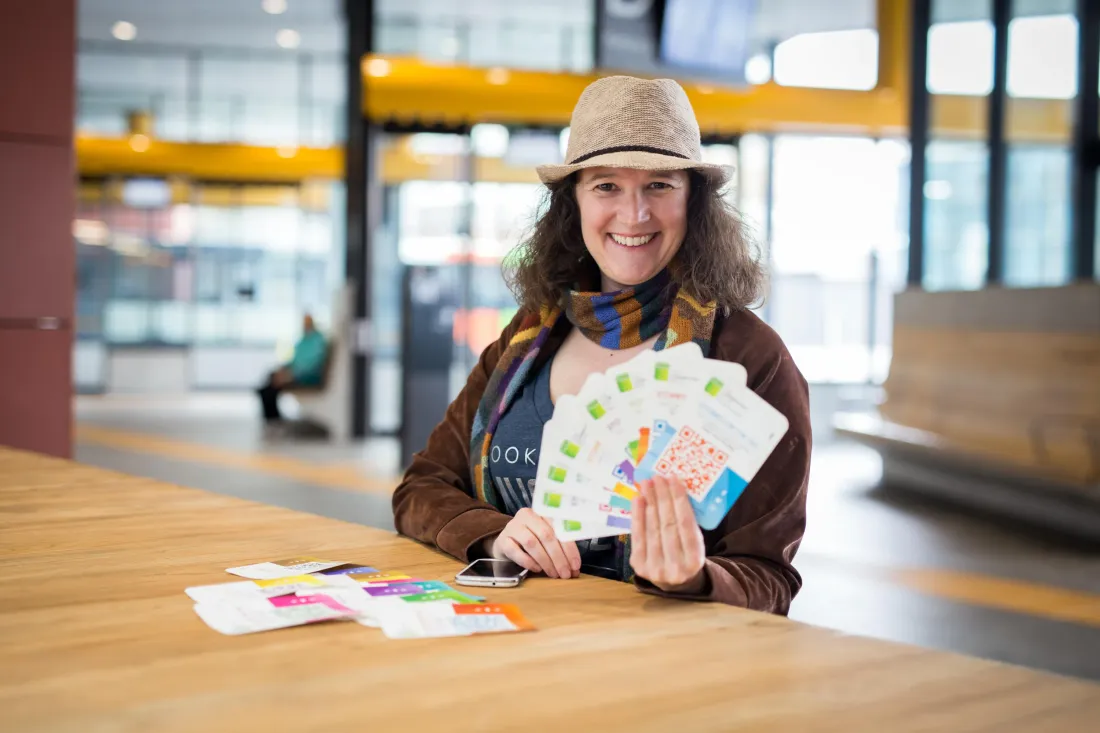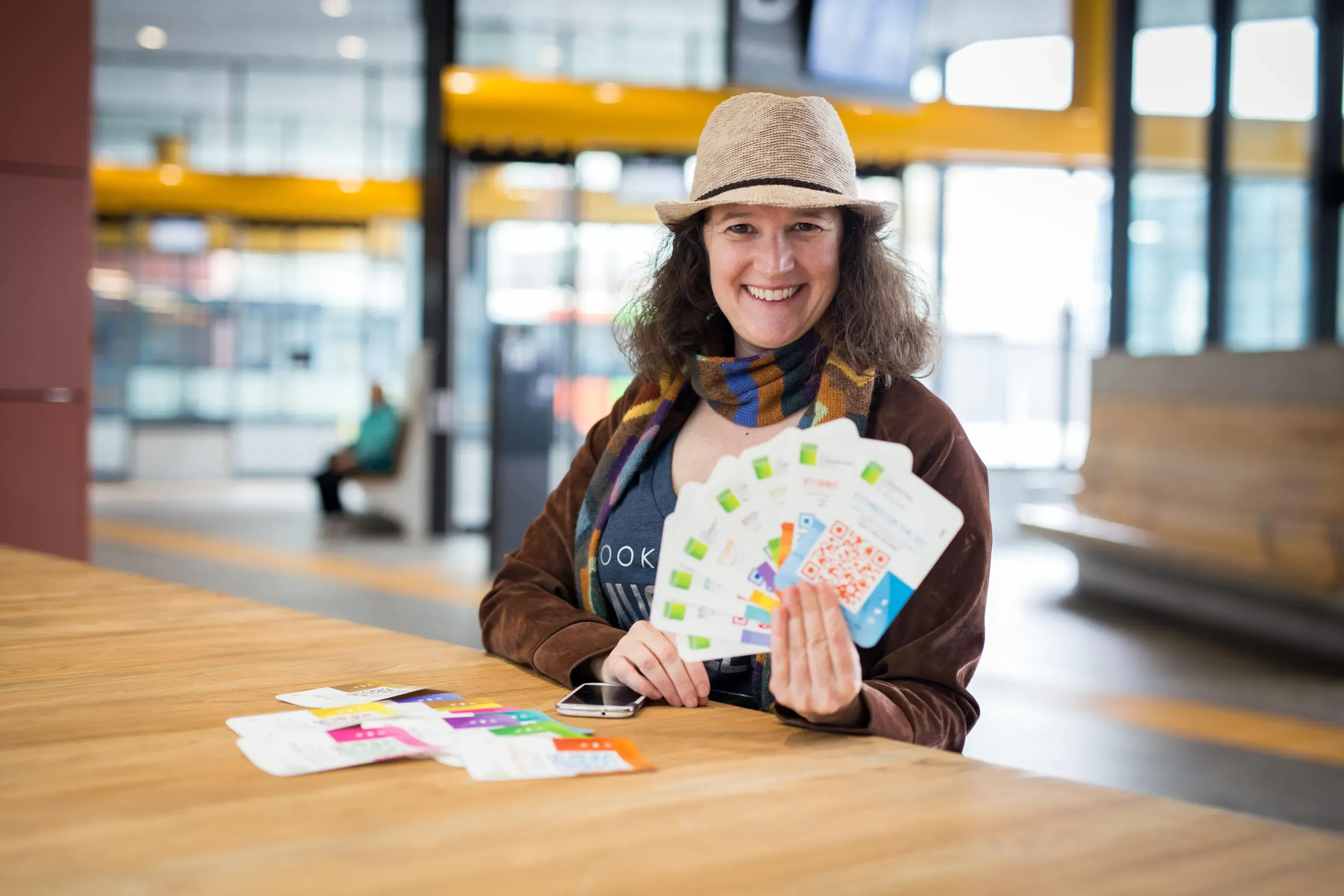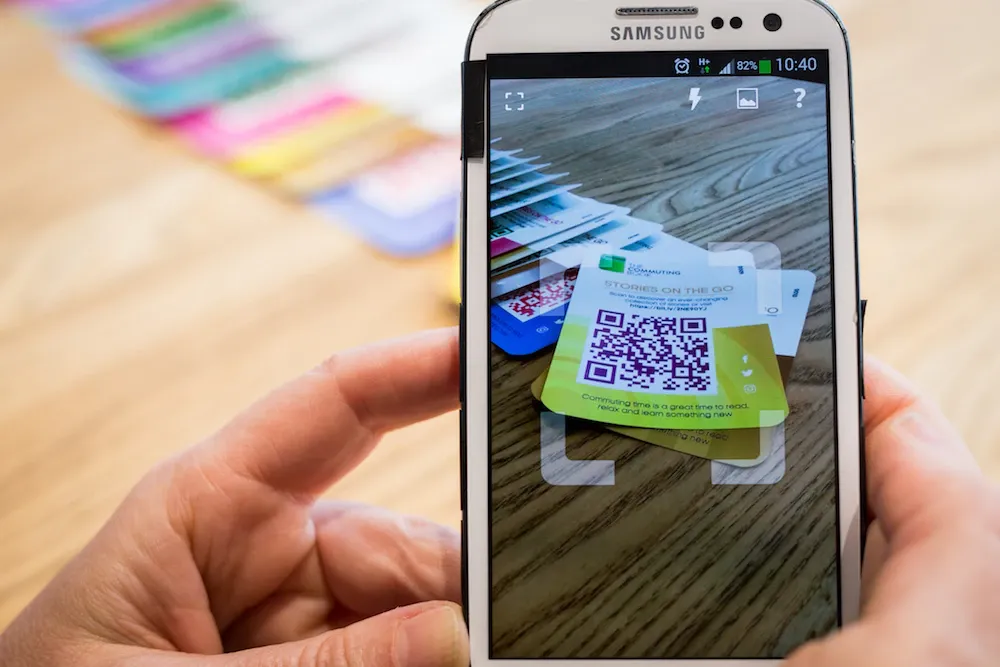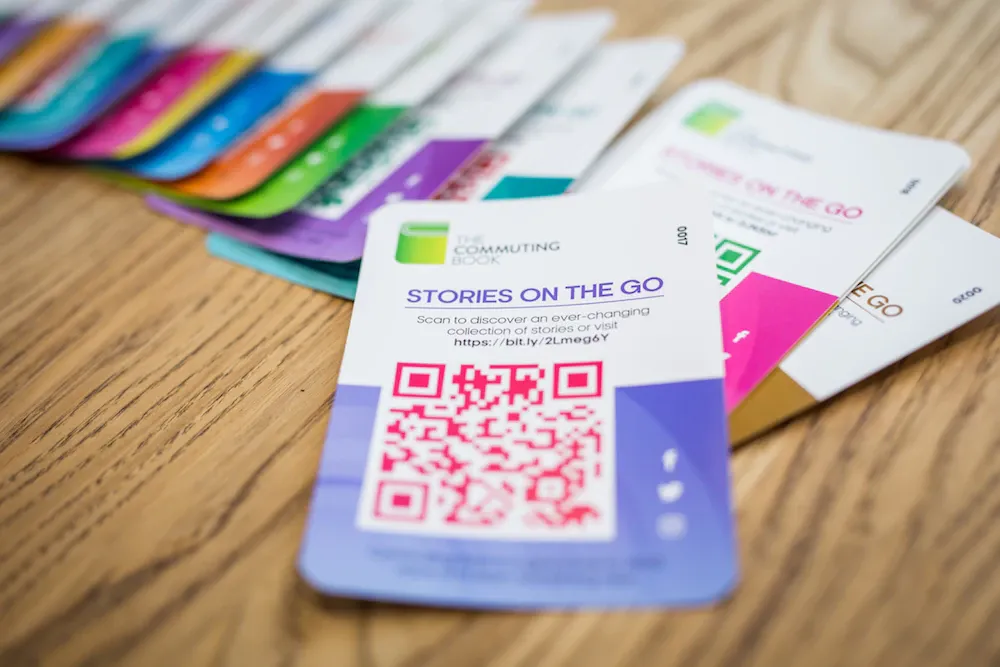Moving words challenge the literacy gap


"400,000 New Zealanders did not read a book last year. 40% of us operate below the level of the literacy needed for day to day life".
The writing is not so much on the walls as on the NZ Book Council home page, and in its "2018 Book Reading in New Zealand" report. Respondents revealed why they didn’t read: they don’t like it, they don’t have the time, and, well, it is just easier to watch the movie versions. Their preferred leisure activities: browsing the internet (80% of respondents did so every day), followed by watching TV.
Reading between the lines, the results are symptomatic of the demands of contemporary working life and a heady array of entertainment, but also of an arts sector that simply cannot reach vast swathes of the population amidst the scattered outlets and eddies of the internet, with its breaking news, sudden viral flashes and social media morsels.

Commuting Books QR stickers. Photo by Erica Austin, Peanut Productions Photography
Magdalena Lorenzo has decided to do something about it. In 2016 she founded The Commuting Book, a not-for-profit organisation that "aims to promote an appreciation and love of reading as a source of knowledge and entertainment by bringing literature to public spaces".
Magda is driven to get "more people into reading" by weaving it back into our daily routines.
When I first met her, she was seeking donations for the book exchanges she was establishing at bus stops in Christchurch. But The Commuting Book has since gone one further with its recently launched Stories on the Go – a digitised collection of stories accessed through the ubiquitous smartphone.
QR code stickers are now on select bus lines in Christchurch – by scanning one into their phone, members of the public are taken to a short story by a New Zealand author. It is free, readily available and petitions a captive audience. Through this initiative Magdalena is specifically targeting non-readers: "People don’t have time – this 15-20 minutes on the bus might be their only contact with literature."
Bringing works into familiar public spaces is a way to normalise them, to make them accessible. Magda sees it as "tempting people by exposing people to books. If you see the QR sticker every day, eventually you will scan it. This might not convert people into regular readers, but they might start appreciating stories as a source of knowledge and entertainment."
The project has been live since 1 August on the airport-bus interchange line, which transports approximately 200,000 visitors and residents a year. With 1269 scans amassed at the time of writing, and counting, the project has since expanded to three more urban lines, including buses on school runs, and one out to North Canterbury – these were selected by Red Bus to provide geographical spread. Stories on the Go is easily replicable across a variety of interfaces. And the potential audience reach is huge.
"People understand the world through a snapshot of news, a limited account, without the context of the bigger picture. Books can give you that."
From conception to implementation, Stories on the Go took some eighteen months. "Red Bus were on board from day one – they understood that it could give people more reason to take the bus. But the turning point was securing all the funding necessary for an effective online presence", Magda explains. Rātā Foundation, Christchurch City Council and Christchurch International Airport’s community fund all threw something into the pot.
As did the young, aspiring and published authors who have lent their work to the cause – Pip Adams, Frankie McMillan, James Norcliffe, Charlotte Grimshaw and Rachael King among them. There are 65 stories to date, which will change over time, and current selections range from science fiction and thrillers to historical fiction and poetry.

Commuting Books QR stickers. Photo by Erica Austin, Peanut Productions Photography
Stories on the Go presents the promise of the chance discovery, the unintended encounter, exposure to views other than your own. "It’s a surprise when you scan, you don’t know what you are going to get."
A valuable offering in an age of social media and internet echo chambers where, as Magda sees it, "People understand the world through a snapshot of news, a limited account, without the context of the bigger picture. Books can give you that. And each story is a thing for you to enjoy without any social obligation to share or 'like' it."
From here Magdalena hopes to hold writing competitions so that The Commuting Book can collaborate with organisations that are willing to sponsor, in order to pay writers for their work. A "Stories from the Farm" series is also on the cards, another means of "bringing writers and readers closer together – aspiring rural writers and people in the city".
"We are not inventing anything new, we are using what is already there". But therein lies the simple beauty of Stories on the Go, through which The Commuting Book has created an arts ecology. The stories lead from one to another, the problems of distribution are resolved, social and pricing barriers are removed, and it deftly negotiates the tensions of catering to a wider audience without compromising works.
Addressing literacy across society, however, is not quite so simple. The task of getting more people into reading is a shared responsibility: "We the readers, those of us who love books and understand their importance, have the ability (obligation?) to support the work of teachers, librarians, governments and other organisations in the ever-challenging task to promote literacy. This is the drive of The Commuting Book."